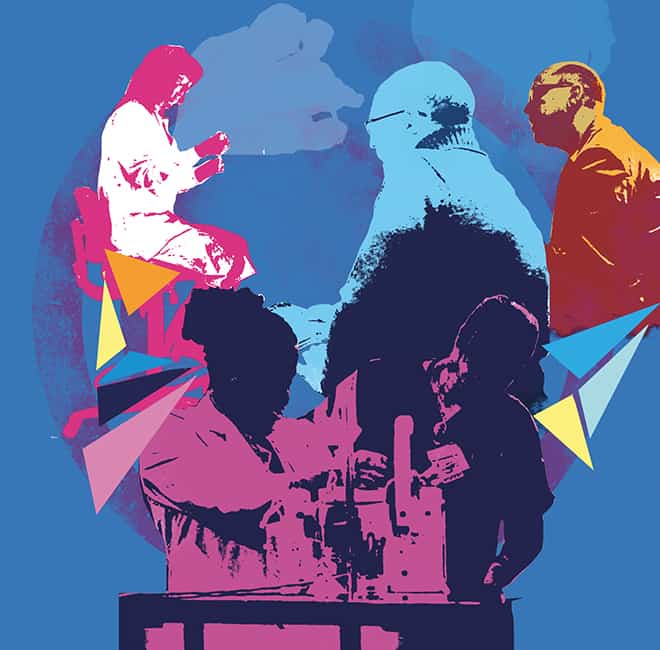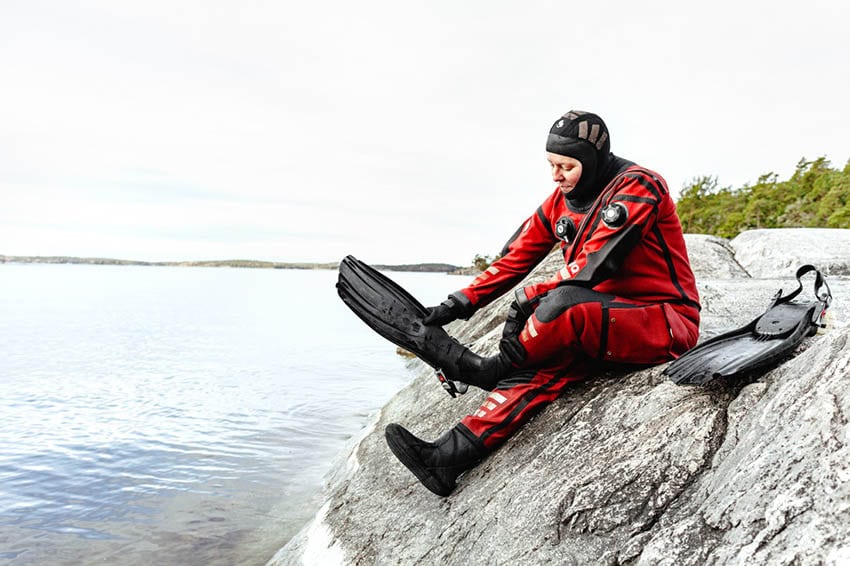Scholarship holders lack access to the social security systems and several other benefits that employees are entitled to, but the number of postdocs working under these conditions has been unknown to date. Universitetsläraren therefore requested information on postdocs from 34 universities. After all, those working for these institutions ought to be registered somewhere, even though they are not included in the official statistics.
The results can be found in the table below. Ten universities informed us that they have postdocs on scholarships. This amounts to about 661 people altogether, which is 20 per cent of the postdocs in Sweden (based on the figures from 2018 relating to employed postdocs). Uppsala University reported the most scholarship holders (127 people), followed by Karolinska Institutet and Lund University.
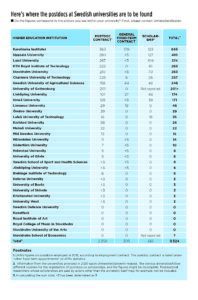
But there are still a number of unrecorded cases. Stockholm University, for example, stated that it has 70 postdocs, but this figure represents only those whose scholarships are paid through the university. Its HR department does not keep track of those who receive their scholarships directly from the funding provider at all. Karolinska Institutet reports that the situation is the same there.
Several universities lack an overview of their postdoc scholarship holders altogether, and have forwarded Universitetsläraren’s request for information to the faculties or institutions.
The University of Gothenburg – where the presence of postdocs has been confirmed to Universitetsläraren – rejected the request for information, saying that this could not be obtained through “routine measures” since the university does not organise such data in this way.
Stockholm School of Economics – which has had a large proportion of its PhD students on scholarships for a long time – did not disclose the information, referring to the fact that as a private institution, it is not bound by the law of public access to official records.
Four different universities have shared information indicating where their postdocs on scholarships come from – and the vast majority come from overseas. From the responses provided by the universities, it appears that they mainly work in medicine, natural science and technology, and that a large majority of them are male.
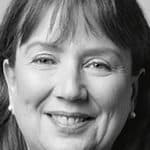
The President of KTH Royal Institute of Technology, Sigbritt Karlsson, is Chairwoman of the expert committee on employer issues of the Association of Swedish Higher Education Institutions (SUHF). She considers it important for universities to keep statistics on their postdoctoral scholarship holders, and thinks it would be good if these figures were reported so that this group could be followed up on a national basis.
“We have a responsibility for those present in our universities, but cannot fulfil that responsibility if they are not included in the statistics,” Sigbritt Karlsson says. “If we cannot recognise their particular needs and meet them, it’s a waste of their energy and our resources.”
Why aren’t there already any proper statistics on postdocs on scholarships at present?
“It’s not a question of reluctance, but rather a result of the fact that postdoc numbers have increased significantly over a 10-year period. We should have done this sooner, but are just embarking on the work now.”
The national statistics available that have been provided by the universities concern only those postdocs who are employees. Figures from the Swedish Higher Education Authority (UKÄ) show that this group grew almost fivefold between 2008 and 2018. During that period, the percentage of employed international postdocs grew from 45 to 76 per cent (see the table below).
“The fact that a large proportion of them are foreigners is not necessarily problematic or strange (the Swedes are probably elsewhere in the world), but it is important for them to become integrated into the research and educational environment, and for them to have the opportunity to learn how the Swedish system works,” Sigbritt Karlsson says. “A lot of them are people who we would like to keep at our universities.”
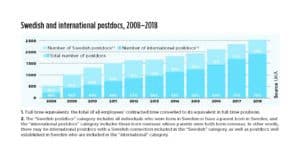
The employed postdocs are usually contracted on the collective bargaining agreement designed specifically for post docs. A few universities, such as Karolinska Institutet, also have a significant group of postdocs on general fixed-term (ALVA) employment contracts, which can be a way of extending the postdoc period by running two successive short-term contracts on from each other. One disadvantage of ALVA is that it does not include the right to a contract extension in the event of parental leave, for example.
In 2018 most employed postdocs were working in the field of medicine (35 per cent) and natural science (34 per cent), followed by technology (14 per cent), social science (10 per cent), agricultural science and veterinary medicine (4 per cent), and humanities and art (4 per cent). Some 55 per cent of these postdocs were male.
